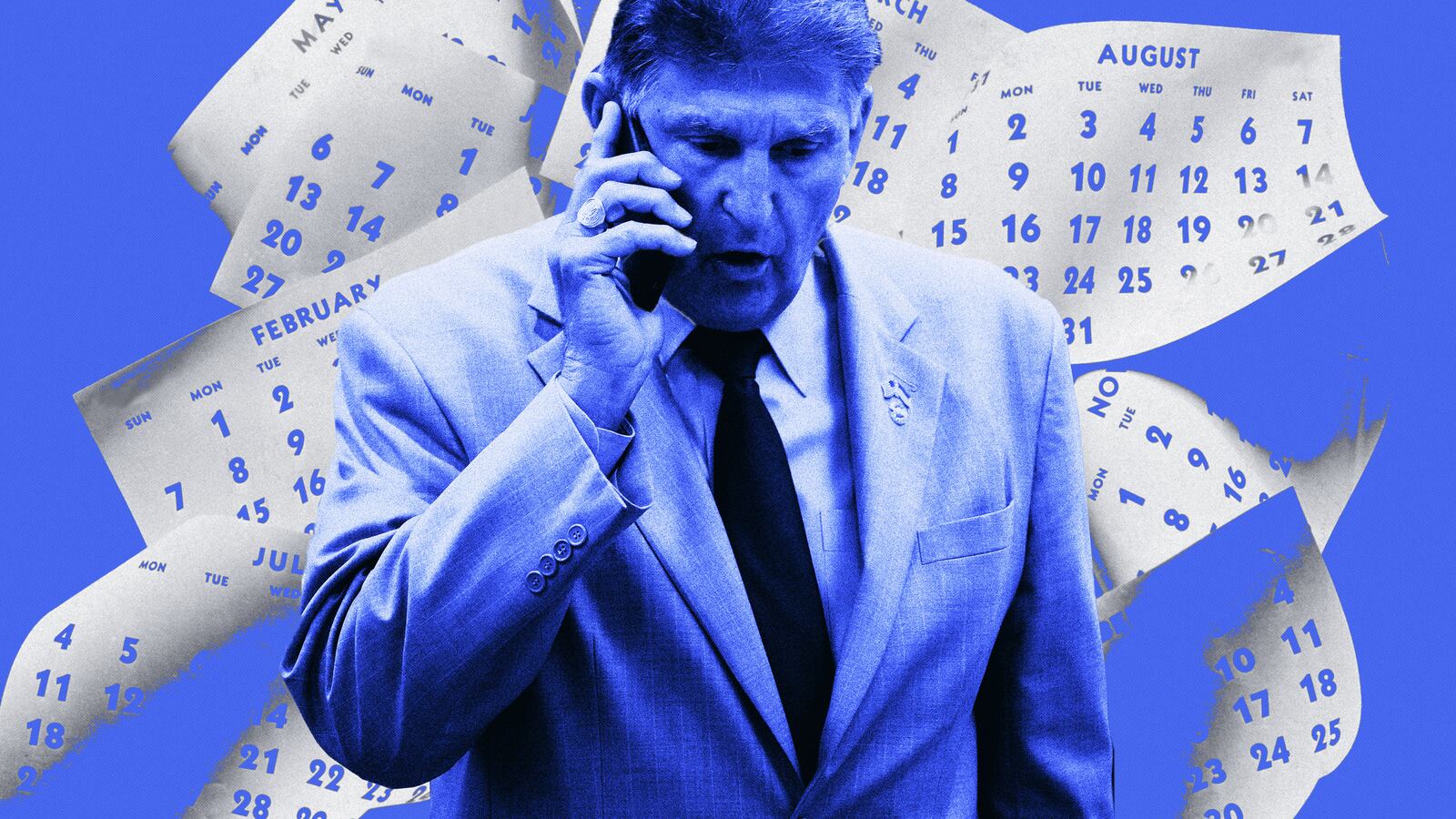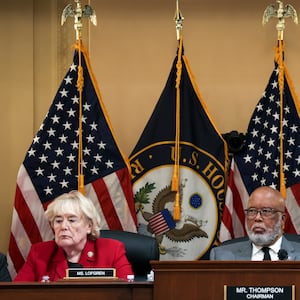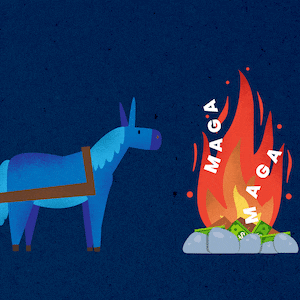With time running out on the clock on the Democrats’ domination of Congress, Joe Manchin shocked the Washington political world on Wednesday.
After months of stymying Democrats’ efforts to pass the massive spending bill, Build Back Better—the West Virginia moderate Democratic senator agreed to salvage the deal, effectively making BBB an energy and healthcare bill.
The political cognoscenti responded by saying “Holy s--t,” and wondering “why now?” and “what changed?”
Manchin previously insisted the deal wasn’t dead, but said he would wait until the July inflation numbers were out before deciding (that data will be released next month). Regardless, most observers saw that promise as just another tease from a senator whose maneuvers have been compared to Lucy pulling the football away from Charlie Brown.
So why did Manchin finally come around?
Larry Summers—Bill Clinton’s former Treasury Secretary and the oracle of inflation—recently met with Manchin, presumably to assure him that this deal would help, not hurt. But there are other, parochial interests, too.
West Virginia has a large senior population (and, sadly, an unhealthy one) who would benefit from federal subsidies. Politico reported on “company executives who came forward with new plans to build manufacturing in West Virginia.” And it looks like the incentives for electric vehicles will apply to hydrogen-powered vehicles (produced by using fossil fuels). Don’t be surprised if this land-locked state that already boasts four Coast Guard offices also ends up with one of those regional “hydrogen hubs” before it’s all over.
All of these things add up. But like a lonely couple who settles for each other at a singles’ bar, these sweeteners probably wouldn’t have been proffered (or accepted) unless both parties—the Democrats and Manchin—finally realized that closing time was fast approaching.
It takes two to tango, and Democrats finally acknowledged the fact that Manchin would have to lead this dance (this deserves an asterisk; it’s still possible some other Democrat will introduce a poison pill or otherwise scuttle this deal).
Last November, I wrote: “[I]f BBB passes, it will essentially be written by West Virginia Sen. Joe Manchin, and progressives will have to swallow that.” This was obvious all along, but Democrats squandered a year-and-a-half of time before, belatedly, acceding to this obvious fact (again, assuming the deal isn’t botched).
At the same time, Manchin must have realized that he will never be more powerful than he is right now.
Few modern senators have ever held this level of influence over their own party, in no small part because it’s rare for a senator to represent a state that went to the other party’s presidential candidate by nearly 40 points. This dynamic makes it impossible for Democrats to cajole, threaten, or discipline Manchin to any effect.
That frees him from intimidation, but it doesn't allow him to impose his will. That part of Manchin’s power derives from the fact that Democrats really, REALLY need him. Right now, they control the presidency, the House, and have a razor-thin 50-50 majority (with the vice president as the tie-breaker) in the upper chamber—a rare chance to get things done that is almost sure to be gone in a matter of months.
These opportunities don’t come along every day. “The Senate has been evenly divided between two parties only three other times,” writes Bill Scher in Real Clear Politics. “In all of those instances, the same party controlled the tie-breaking Senate vote (the vice president), the House, and the White House. But only one of those past instances, in 2001, occurred after the establishment of the filibuster-proof budget reconciliation process, creating an avenue for legislation to pass on a narrow party-line vote.”
To be sure, Manchin will still hold a lot of sway come 2023, no matter which party has the majority in the Senate. Like Republican Sens. Susan Collins and Lisa Murkowski, both parties are forced to pay attention to the ever-decreasing number of moderate members.
But he will never again effectively be “President Manchin,” as he has been since January 2021.
As a West Virginia resident, Manchin’s gambit—should it hold—doesn’t strike me as a great political move. Manchin’s popularity in the Mountain State only increased during his time as a contrarian obstructionist. Why change now? Despite the potential for bringing home the bacon, the optics are not good in what is now a red state. You can talk all you want about how this is “the Inflation Reduction Act of 2022,” but Republicans in West Virginia (and beyond) can honestly say that during a time of rising inflation (when the normal indicators suggest we are in a recession), Democrats decided to spend another $700 billion and raise taxes.
This is where we have to consider Manchin’s deep-seated motivations. If what matters most to him is accomplishing big things, he has just a few short months to lock in that legacy. It seems entirely possible to me that Manchin, who is a sneaky 74-years-old, may have decided that putting points on the board was more important than getting re-elected in 2024.
That doesn’t mean he has resigned himself to retirement or to defeat, but it does suggest to me that staying in Washington for another eight years (his next term would end in 2030) isn’t Manchin’s top priority.
The power Manchin has achieved is rare, and for better or worse, he’s decided to wield it. But it’s almost midnight, and his Senate superpowers expire soon.







